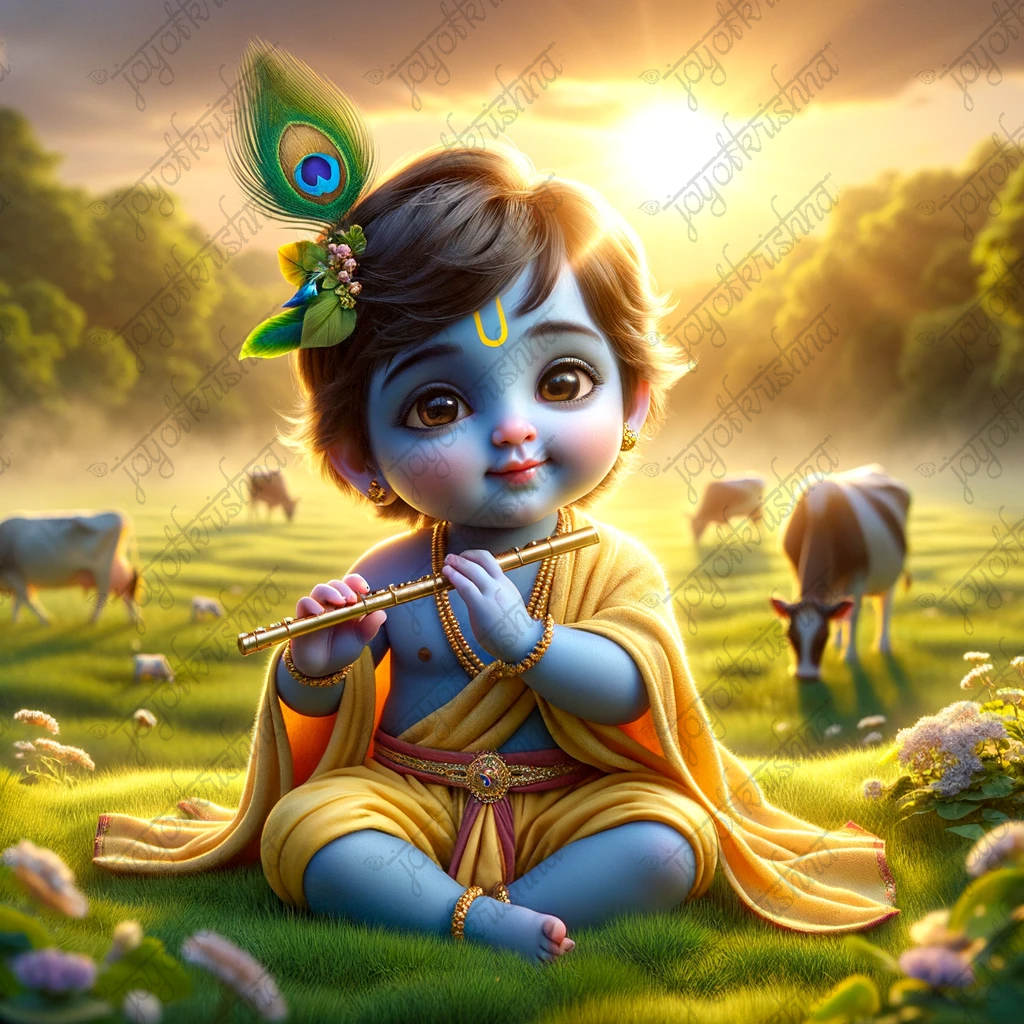
Lord Krishna, the eighth avatar of Lord Vishnu, is one of the most revered and beloved deities in Hinduism. His life and teachings have been a source of inspiration for millions of people around the world for centuries. Born in the city of Mathura, Krishna was the son of Devaki and Vasudeva, and was raised by his foster parents, Nanda and Yashoda, in the village of Gokul. From a young age, Krishna exhibited extraordinary abilities and performed many miracles, which earned him the love and adoration of the people. As he grew older, Krishna became known for his bravery, wisdom, and divine powers, which he used to protect his people and vanquish evil. One of the most famous stories about Krishna is his role in the epic battle of the Mahabharata, where he served as the charioteer and advisor to the Pandava prince, Arjuna. Krishna’s teachings to Arjuna, as recorded in the Bhagavad Gita, are considered some of the most sacred and profound in all of Hindu scripture. In the Gita, Krishna teaches the importance of selfless action, devotion, and spiritual growth, and provides guidance on how to live a virtuous and meaningful life. Throughout his life, Krishna was known for his love of music, dance, and celebration, and was often depicted playing the flute and surrounded by his devotees, the gopis. His love for Radha, one of the gopis, is particularly famous, and is often seen as a symbol of the divine love that exists between the individual soul and the ultimate reality. Despite his divine nature, Krishna was also known for his humility and accessibility, and was often approached by people from all walks of life for guidance and blessings. His legacy continues to inspire and uplift people to this day, and his teachings remain a powerful force for spiritual growth and transformation. In many parts of India, Krishna is still celebrated as a living presence, and his birthday, Janmashtami, is one of the most popular festivals in the Hindu calendar. On this day, devotees fast, sing devotional songs, and perform elaborate rituals to honor the birth of their beloved lord. In the temples, Krishna is often worshipped in his various forms, such as the child Krishna, the youthful Krishna, and the lordly Krishna. Each of these forms represents a different aspect of his divine personality, and is revered and adored by his devotees. Through his many forms and manifestations, Krishna continues to captivate the hearts and minds of people around the world, and his divine presence remains a source of inspiration, guidance, and comfort for all those who seek him. Whether through his teachings, his music, or his love, Krishna remains an integral part of Hindu culture and spirituality, and his legacy will continue to endure for generations to come. As a symbol of divine love and wisdom, Krishna’s impact on human consciousness is immeasurable, and his influence can be seen in many aspects of art, literature, music, and philosophy. His life and teachings serve as a reminder of the transformative power of love and devotion, and the potential for human beings to realize their true nature as spiritual beings.